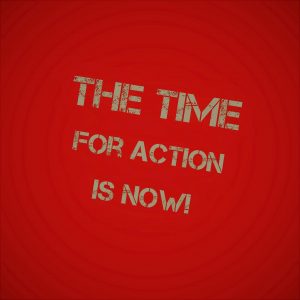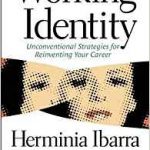03 May Personality Testing, Coaching and Confidence
Personality Testing, Coaching and Confidence: What Binds My Work Together
 How are personality testing, coaching and confidence related? One of the things I find frustrating is why so many talented and able people lie undiscovered and unappreciated. Sometimes, it’s because they are hidden away in a dusty corner of some organisation. Other times it’s because they themselves choose not to come into the light. This could be because of confidence issues. Or perhaps they are wary of the pressure and scrutiny and other consequences of coming out of the shadows…or maybe they just don’t know how!
How are personality testing, coaching and confidence related? One of the things I find frustrating is why so many talented and able people lie undiscovered and unappreciated. Sometimes, it’s because they are hidden away in a dusty corner of some organisation. Other times it’s because they themselves choose not to come into the light. This could be because of confidence issues. Or perhaps they are wary of the pressure and scrutiny and other consequences of coming out of the shadows…or maybe they just don’t know how!
For years this was my guiding motivation while I was helping small businesses under the umbrella of my PR company, Do Your Own PR. I was so fired up by this, I even named my first book Get Noticed, helping both brands and business owners raise their profiles.
Leaping into Business Psychology
When I moved from PR to business psychology I didn’t really have a firm idea of what I wanted to do with my qualification. I had always loved psychology as a teenager, voraciously reading Hans Jürgen Eysenck’s books on IQ and personality theory. I would spend hours making up tests to do on my friends and practised hard to get my IQ score up! Sadly, a career adviser wrongly pointed out that doing psychology at University would only lead me into a job in a mental hospital or prison service. With these words ringing my ears, I chose to do English literature instead.
I don’t regret that decision at all. It lead me into a fantastic and fulfilling career but, in my forties, I was starting to question whether I wanted to do this for the rest of my life. The explosion of social media, and the loss of personal connection with journalists that entailed, meant that I wasn’t feeling as fulfilled as I had previously. Besides, which who stays in the same job for 20 years? It was time for a change.
A date with a man who was in his 50s training to be a barrister was the trigger. If he could do it, start all over again, at that stage in his life, why couldn’t I, a good many years younger, do the same? Fired up and inspired, I somehow jumped feet first into a Master’s in Business Psychology without quite knowing what I was going to do with it at the end.
Two years later, however, it was quite clear.
Personality and Psychometrics
 It was the areas of personality testing, coaching confidence that were my thing. It was the person to person connection that I needed, the lack of which had driven me from PR in the first place. Personality and psychometrics, coaching, mentoring…all these would both fulfill me and help me lead others out of the shadows at the same time. There was sound business thinking behind all this. Leaving all that I had learnt over my many years in PR would be a tactical mistake. I had coached hundreds if not thousands of business owners around doing their own PR. Much of this was the nitty gritty of it, such as how to write a press release or tips on cold calling journalists. A significant part of this, however, was also looking under the skin to see what was holding them back. There I often found issues like confidence, time management, Imposter Syndrome and a lack of direction…all of which could be helped by psychology.
It was the areas of personality testing, coaching confidence that were my thing. It was the person to person connection that I needed, the lack of which had driven me from PR in the first place. Personality and psychometrics, coaching, mentoring…all these would both fulfill me and help me lead others out of the shadows at the same time. There was sound business thinking behind all this. Leaving all that I had learnt over my many years in PR would be a tactical mistake. I had coached hundreds if not thousands of business owners around doing their own PR. Much of this was the nitty gritty of it, such as how to write a press release or tips on cold calling journalists. A significant part of this, however, was also looking under the skin to see what was holding them back. There I often found issues like confidence, time management, Imposter Syndrome and a lack of direction…all of which could be helped by psychology.
Thinking Scarlet
I decided to call my business Scarlet Thinking and specialise in personality testing, coaching and confidence building . I found that starting the Masters had triggered a snowball effect and that I was now much happier about throwing myself into uncomfortable situations. I laughingly described this as my Scarlet Thinking – bold, brave thinking – and named my business accordingly because being more visible inevitably means being braver and bolder.
It was this was that my area of interest (and genius!) moved from one of helping business owners stand out to helping anyone stand out. This both excites me and fulfills me. I know, hand on heart, that it adds value to others. It helps employees gain the confidence to come into the light and it helps organisations discover hidden talent and encourage it out of the darkness. I’ve noticed that on many occasions I’ve conducted psychometric personality testing and discovered something about an employee that encourages an organisation to look at that individual in a new and positive way.
Masterminding Groups
 My mastermind groups, The Hot House, allow me both to coach business owners around raising their profile, and to share valuable psychological exercises around mindset. Drawn together by a shared desire to move into the limelight, my Hot Housers are harnessing the power of psychology with the how to of PR, social media and marketing. It’s a heady combination, if I say so myself.
My mastermind groups, The Hot House, allow me both to coach business owners around raising their profile, and to share valuable psychological exercises around mindset. Drawn together by a shared desire to move into the limelight, my Hot Housers are harnessing the power of psychology with the how to of PR, social media and marketing. It’s a heady combination, if I say so myself.
Scratch the surface and so many of us hold ourselves back. I believe that this is why the Marianne Williams quote is so often used.
“Our deepest fear is not that we are inadequate. Our deepest fear is that we are powerful beyond measure. It is our Light, not our Darkness, that most frightens us.”
It seems to resonate with so many of us.
Change
I don’t have all the answers, even as a psychologist. As humans, we are deeply trained, perhaps even at DNA level, to be wary of change as change means uncertainty. This is hard to throw off. What also holds us back, in the UK in particular, is being brought up in a culture where children were seen and not heard, where to talk about yourself can be construed as bragging. Things are changing in the way children are being brought up, but for those of us who were raised in this way, standing out can feel a lot like risking being thought of as big headed.
However, being more visible is not an easy landscape to navigate. Even though social media can offer us a useful tool, the temptation is to misuse it – pouting selfies, over gushing comments, trolling to get noticed. No wonder so many of us back away from it and think it’s easier to stay nice and quiet and unnoticed. Safe.
Visibility and Recognition
 There will also be those people who never want the limelight. The No 2s or backroom boys who get their fulfillment from the doing of a good job, for getting things right. Being more visible is not a draw for them. They don’t have the need to be recognised.
There will also be those people who never want the limelight. The No 2s or backroom boys who get their fulfillment from the doing of a good job, for getting things right. Being more visible is not a draw for them. They don’t have the need to be recognised.
These are not my clients. My client is the CEO of an organisation who is sitting in front of me looking at a psychometric test of someone that could be amazing management material. My client is the woman who is unsure about whether to leave a boring, safe and unfulfilling job for something with meaning. My client is the business owner who wants to know how to get their name out and feel supported while they do so.
My clients want recognition. They know that they have something worthy to bring to the world, something valuable to say, or some cause to champion, and they want people to know it.
This need to be recognised stems deep. Think about our need to be recognised by our own parents and care givers at an early age. When this goes well you’ll have someone who is securely attached and able to function well in relationships. When the parent or caregiver is absent or not always interested, avoidant and insecure attachments styles start to creep in and people have issues with clinginess or avoiding intimacy. This is one illustration of how important it is to really be “seen” by another.
We want to be seen as a valued and respected member of our group, of our tribe. Once upon a time, being rejected by your tribe meant a likely death through starvation or being attacked by a marauding mammoth. People didn’t too well on their own. They needed a group to accept and protect them.
Being Heard
 Have you ever been in a crowded bar and tried to shout over all the noise? What happens? You may manage for a while, but pretty quickly you’ll get tired and your throat will fear hoarse. You may even end up sitting next to each other in silence, your attention taking by everything else that is going on around you. Conversation just becomes too hard and the easiest and most comfortable thing to do is to do nothing.
Have you ever been in a crowded bar and tried to shout over all the noise? What happens? You may manage for a while, but pretty quickly you’ll get tired and your throat will fear hoarse. You may even end up sitting next to each other in silence, your attention taking by everything else that is going on around you. Conversation just becomes too hard and the easiest and most comfortable thing to do is to do nothing.
The trick however, is to whisper in someone’s ear. It cuts through the noise and ensures an instant connection. Succinct, focused and strategic. This is how we should be raising our visibility and gaining recognition. Trying to compete with what everyone else is doing is almost impossible.
Psychometric Testing and Confidence
Instead of competing with others, we can look inwards at our own strengths and values. Psychometric testing, especially my go-to, Saville Wave, is a brilliant tool for this. One 45 minute test and you will see all your strengths and areas for development laid bare in front of you. Your strengths are the things you should be whispering strategically to the right people.
Of course, the next part of the puzzle is the confidence to do this. Confidence is a major issue, especially for women. I’ve seen women at the top of their profession come to me with issues around confidence. Once again, I’m not the most confident person in the world, In fact, I believe this helps me understand where my clients are coming from. I have experienced much of what they go through, and still do. However, I’m a big believer in not waiting for the confidence fairy to alight and wave her wand, but to do it anyway, confidence wobbles and all.
The Bitch Network
 It’s a belief that played a large part in inspiring The Bitch Network, a coaching network around women’s self-confidence and assertiveness. It may sound like a feminist platform, but my own Values are very much attuned to empowering individuals. There are plenty of men out there who aren’t Alpha males or find themselves stuck in this beige life that offers no real enjoyment or fulfillment. The name, however, works. People relate to the idea of having a bitch inside: that steely woman who can make cold-blooded decisions when she needs to, or the firebrand who can whip up support for a cause she believes in. Al too often these personas will only come out under stress, in life or death situations, or where you really have to fight for yourself or others.
It’s a belief that played a large part in inspiring The Bitch Network, a coaching network around women’s self-confidence and assertiveness. It may sound like a feminist platform, but my own Values are very much attuned to empowering individuals. There are plenty of men out there who aren’t Alpha males or find themselves stuck in this beige life that offers no real enjoyment or fulfillment. The name, however, works. People relate to the idea of having a bitch inside: that steely woman who can make cold-blooded decisions when she needs to, or the firebrand who can whip up support for a cause she believes in. Al too often these personas will only come out under stress, in life or death situations, or where you really have to fight for yourself or others.
The concept of The Bitch Network is acknowledging that we have these personas inside us and learning to access them whenever we need them. This means doing things like examining our boundaries, discovering what it really is that we stand for and stand against. What a lot of confidence and assertiveness training does is teach you the tricks – the body language for instance. We do cover that in the Bitch Network, of course. However, as a psychologist I believe that it’s far more effective to work from within and find that confidence, even if it’s cleverly hidden deep down.
Bitch
Working with psychologist Wendy Kendall as my business mentor has introduced me to the idea of Internal Family Systems, the idea that we have multiple parts inside us and they all have a part to play. The Bitch is often one of those parts and a hugely useful one. As Wendy says, “every part is welcome”.
Still, “Bitch” is a contentious word, I know, and that was a deliberate choice. However, it’s not about being a bitch to others. Far from it. It’s more likely that we use our Bitch Energy to stand up for others (or ourselves), keep us disciplined and focused, something that many of my clients struggle with in this fast moving digital world.
I’ve had to draw on my own Bitch energy to get through a divorce, as well as research and write my dissertation whilst being a single mum to three teenagers and running a business. Goodness knows how I did it but my Inner Bitch definitely had a major part to play, keeping me focused, and reminding me why I was doing it. There were moments when she was my inner strength.
I hear these sorts of stories over and over again: the women who have had to rely on their Inner Bitch when they’ve been bullied at work and no one is listening, when their ex-husband turns psycho, when their siblings take advantage of them too many times. Let’s face it, there are some days when we have to draw on our Inner Bitch just to get dressed and out of that door.
If you don’t like the word Bitch, you can use Lioness or Superwoman. It doesn’t really matter. The important thing is that you find her and learn how to use her.
Partnering up
The reaction to The Bitch Network, from our very first Bitch Night at the Library Club in London in 2018, has been powerful. So powerful in fact, that I was a little nervous of it. There is so much potential. What floored me a little was the realisation that I can’t do this on my own. After working on my own since I was 21, I made the momentous decision (for me) to partner up with health coach Rachel McGuinness to bring the Bitch Network to a wider audience. This was partly because I feel it’s more than a one woman job, and partly because I want company on the ride. Nevertheless, it is straying into unknown territory and stretching myself.
Both Scarlet Thinking and The Bitch Network have empowerment at their heart, working with clients through personality testing, coaching and confidence building. While everyone is different, there are some steps that can help all us in this area:
- Knowing yourself. With psychometric personality tests pretty much my day job it is natural that I would say this. It is something that I firmly believe in. Knowing our strengths and weaknesses gives us huge capacity to make the right decisions, such as realising that job isn’t going to work for you as it’s working on your own at home and you understand that you need a team around you to stay motivated. Knowing our strengths and really owning them empowers us. They are our USP, our unique selling point. They give us confidence and build our sense of self-worth. A properly conducted personality test can help you see where you may be falling down and repeating the same patters, like disintegrating into chaos as soon as a little bit of stress comes along.
- You need support. I’ve worked on my own for decades now, but I wouldn’t have been able to do it without the support of coaches, mentors and fellow business owners who have turned into friends. It’s a lonely road out there and sooner or later you are going to need that support. Instead of using it as a desperate measure, set things up so that you are supported, motivated and inspired every day. Choose to be around people who are positive influences, upbeat and optimistic. Read books that are inspiring and get you thinking in different ways, join mastermind groups and find yourself a business buddy. Invest in a coach and look for both mentors and sponsors within your organisation if you’re employed. No one can do everything alone.
- Look after yourself. All of this sort of work can be hard. Both hard work as in stepping out of your comfort zone, but also hard work in that you may be confronting things about yourself that you may not like. Self-love and self-care is the key to navigating this successfully. Without that you are a resource that is being over-stretched.
What’s important to remember is that one person’s self-care is another person’s nightmare. One of my friends loves running races through muddy tracks, getting out in all weathers and beating her last time. You would have to pay me a lot of money to do this. A bath and a compelling book will do it for me. This sounds simple, yes, but how many of us regularly put this into practice, taking time out to do nothing, scheduling in massages or making sure we don’t waste our holidays and free time on endless washing and taxi-ing the kids around.
Once again, this is where your Bitch can help. Sometimes, you just need to be selfish for survival. And we all want to do way more than just survive!
Resources
Books I have found useful for myself and my clients are:
 Working Identity by Herminia Ibarra. This uses the theory of Possible Selves to investigate how we reinvent ourselves. Far from waking up one day with brand new life, we engage on a process that is messy, full of backwards steps and possibly never ending.
Working Identity by Herminia Ibarra. This uses the theory of Possible Selves to investigate how we reinvent ourselves. Far from waking up one day with brand new life, we engage on a process that is messy, full of backwards steps and possibly never ending.
The Power of Now by Eckart Tolle. When I’ve been so concentrating on doing and reaching my goals, this book reminds me that there is more to life. I am a human being, not a human doing.
Romancing the Ordinary by Sarah ban Breathnach. A month by month journey through ideas for self-care. Lyrically written, this book has been on my shelves for many years and is literally so well used that it’s in danger of falling apart.





No Comments